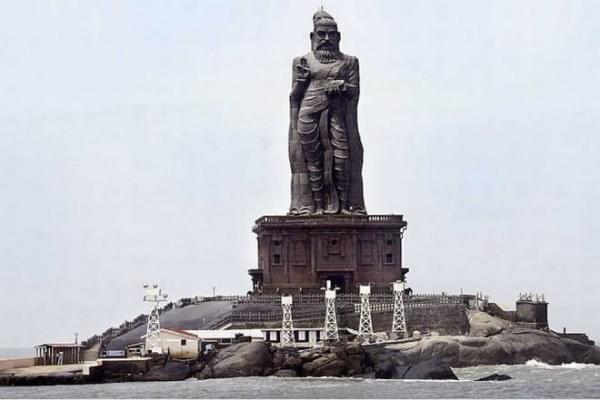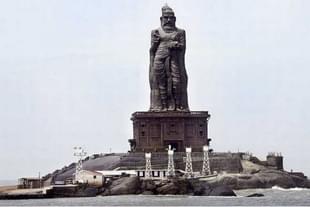Culture
Swadeshi Indology Conference: Where The Western Claims Fell Silent
Jyotirmaya Tripathy
Jan 07, 2018, 02:33 PM | Updated 02:33 PM IST
Save & read from anywhere!
Bookmark stories for easy access on any device or the Swarajya app.


The recently concluded Swadeshi Indology Conference in Chennai was historic in more ways than one. For a change, the mainstream media (MSM) did not cry foul as in 2016, maybe because of its realisation that swadeshi is not such a bad word after all, and that there is no point in investing time and energy in manufacturing intellectual dissent, which most Indians do not believe in. In a substantive sense, and outside MSM’s predictable hatred for swadeshi, the third edition of Swadeshi Indology Conference 2017 was not a whisper, but a movement.
The conference brought together scholars from various parts of the globe who were interested in the topic not in a reductive academic sense, which often produces knowledge about India through a subject-object binary as in Western Indology, but in an integral and organic sense. The paper presenters did not have to use repetitive Western theoretical chicanery, the hallmark of many academic conferences, where box-office intellectuals/academics meet and sustain a mutual admiration society. Here the topics of research were the researchers’ way of life; the researchers lived their research.
Elephant’s Teeth And Western Indology
The edifice of Western Indology or just Indology as it is known (such is the power of the West to universalise its culture specific understanding and the willingness of our slavish intellectuals to internalise the same) was inseparable from power. The power to control territory as during colonialism was predicated on knowing the territory, its people and its values so that they can be known, guided, civilised, divided and controlled. Like the elephant, whose tusk is visible and the molars are inside the mouth, the overt objective of Indology was to produce knowledge about India and the covert objective was to control. Western Indology sought to achieve the latter through the former, and also by making India appear as the background of civilisation or the West’s other.
Though it will be simplistic to say that all Indologists were driven by the desire to discipline and control, it will not be far off to say that at its heart, Western Indology was an Orientalist enterprise. Even while exoticising and romanticising India, there was an attempt to deny contemporaneity/modernity to it and then relegate it to the infancy of human civilisation. The child-like innocent India still remained the negation of the West and its modernity. Starting from William Jones through German Indologists like Herder and Schlegel or even Hegel, India belonged to a far off space and time, something the West has evolved out of. Orientalist representation of India continued in the works of American Orientalists as in Pollock and Doniger, who systematically but subtly distorted our heritage and desacralised our language and gods.
India’s Independence did not ensure the demise of this mentality. As brown sahibs replaced white sahibs in administration, Western Indologists were replaced by brown Indologists, who by then had surrendered to Macaulay’s grand vision. Even Nehru proudly announced that he approached India as a Westerner and that India was laid before him as a mysterious woman, to be explored and tamed. It was quite natural, though unfortunate, that organic thinkers such as Coomaraswamy or Upadhyay could not thrive in a climate totally controlled by Nehru and Nehruvians. Let alone adversaries, Nehru did not even spare Gandhi who harped on Ram Rajya and village centric life in contrast to Nehruvian vision of dams and urbanisation.
It does not require effort to understand that anything organic or Indian prior to independence was an anathema to Nehru (his famous line ‘there is only one way traffic in time’) so that the post-independence India will have only one protagonist, ie Nehru himself. Thus the present crop of India-phobic intellectuals are Nehru’s children, who are convinced about their role as agents of modernity who can save India from its descent to pre-modernity (read Hindu past). The readers already know how the knowledge producing institutions such as Indian Council of Historical Research or Indian Council of Social Science Research or Jawaharlal Nehru University were controlled by Nehru’s children and how they went about selling colonial wares long after colonialists were gone. The legitimacy of their knowledge sprang from their successful imitation of Western colonialist paradigms and the elision of an India deeply rooted in Hinduism.
Swadeshi Indology And Reclaiming The Indian Narrative
As someone said, total power lies not in controlling people’s future as commonsensically understood, but in controlling their past and engineering their sense of self. The Orientalist Indologists and their Indian followers were reasonably successful (in elite circles if not in everyday life) in producing India as an object of knowledge, and had successfully made that knowledge institutional and canonical so much so that India will never be known outside these parameters even after independence. The West and its representation of India will continue to remain reference points for any scholarly discussion.
Since control of history and historical past are as much insidious as controlling territory, Indologists made us forget our stories, our way of making sense of our past and imagining our place in it. They believed that a subject nation robbed of its power to tell their own tales will be totally defenceless and will continue to depend on others for self-expression. But unlike native Americas or the better part of Africa, Indians continued to retain their cultural beliefs in spite of all the attempts by invaders, missionaries, colonisers, Western Indologists and their contemporary messengers in the form of intellectuals and academics. This is a testimony to the resilience of Indians who after 1,000 years of invasion continue to maintain their distinctness. Debunking the belief that it is just a matter of time before Indians get completely modernised and secularised (read de-Hinduised), even today cultural and religious festivals are celebrated with enthusiasm that connects the past with the future and resonates with Indian way of understanding time as cyclical.
Swadeshi Indology is an approach with two impulses: the impulse of deconstructing Western Indological representation and the other is reconstructing a narrative where the difference between subject and objects of knowledge is no longer maintainable. If the first impulse reverses the Western gaze and tells the latter’s advocates that they are liars, the second one takes upon itself the duty of offering alternative stories, where the sacred and secular are one, where timeless and temporal are one, where physical and metaphysical are one, where vernacular and cosmopolitan are one. This is an experience where continuity trumps disjuncture. This grand narrative (not in a typical postmodern sense) takes as its entry condition the belief that India is not merely a geographical expression or that India became India only after 1947 or that India can develop by aping the Western evolutionary history. It operationalises itself by harping on unity (not uniformity) and commonality (not homogeneity) and brings together various cultural articulations from various parts of the country to show how in spite of their cultural specificities, they contribute to the Indic values of continuity and toleration.
Swadeshi Indology Conference in 2016 had exposed the civilisational arrogance of Sheldon Pollock and had highlighted the vitality of Sanskrit as the deep structure of Indian cultural expressions. The Swadeshi Indology Conference 2017 had archeologist R Nagaswamy talking about commonalities between Sanskrit and Tamil and seeing Thirukkural as almost Vedic in essence. This is something our box-office intellectuals can hardly digest or their media sepoys can hardly appreciate, but must grudgingly accept given that such research is based on evidence. Even before Swadeshi Indology Conference series, its convener and sutradhara Rajiv Malhotra had been making scholarly interventions to deconstruct Western manipulation of Indian reality in books such as Breaking India, Being Different and Battle for Sanskrit. Elsewhere, scholars like Arvind Sharma, Vamsee Julluri or Makarand Paranjape are contributing to the debate and keeping the hopes alive. Contemporary India is aspirational, forward looking yet rooted, and though it has found its voice through these scholars, it may very well carry forward the task on its own.
While participating in a conference in Morocco, I met an old acquaintance from a US university who specialised in Caribbean studies. After the exchange of pleasantries and the standard harangue on US President Donald Trump, she lamented that the Indian origin population in the Caribbean is increasingly getting Hinduised and is slowly losing interest in caste identities. She had seen the use of saffron colour in Caribbean Hindu festivals, which convinced her that it must be the handiwork of BJP-RSS to rob Indian origin people of their caste identities. Though I was not sure as to how asserting caste identity is such a progressive thing to do where as identifying as Hindu is not, I kept quiet not to further her frustration.
I wished my acquaintance better luck next time so that the Indian origin people in the Caribbean understand the pangs of a researcher and start living their lives as per the researcher’s script, which can be achieved by dividing them on caste lines and making them worthy of a research topic. After my return from Morocco, I participated in the Swadeshi Indology Conference 2017 and experienced the obsolescence of academic orthodoxies and the purva-paksha of Western Indology making way for the uttara-paksha of Swadeshi Indology. I knew, and so did others present there, that India will survive and so will Indians, and the stories they tell about themselves will be autonomous of externally imposed categories.
Jyotirmaya Tripathy is Professor in the Department of Humanities and Social Sciences, IIT Madras. Views expressed are personal.





